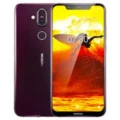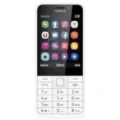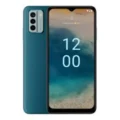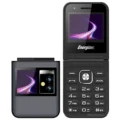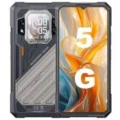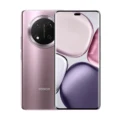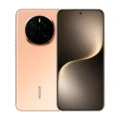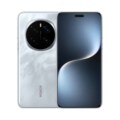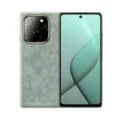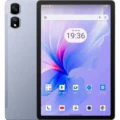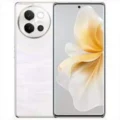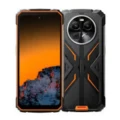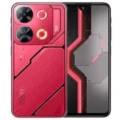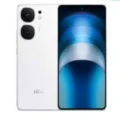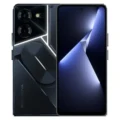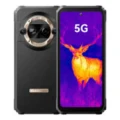Nokia 2660 Flip
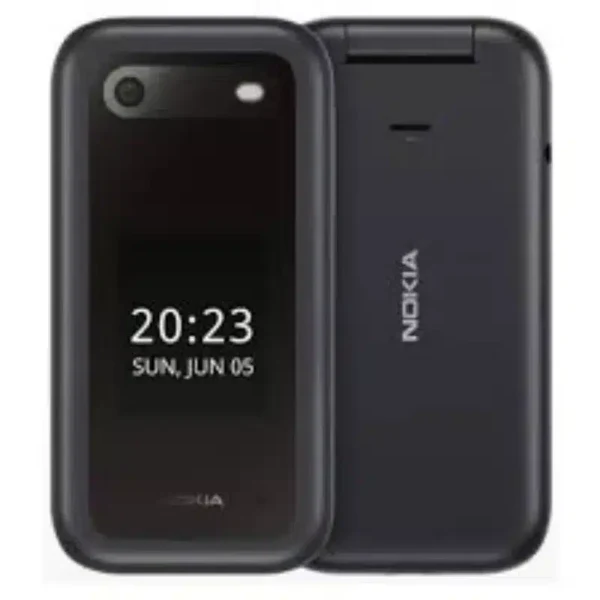

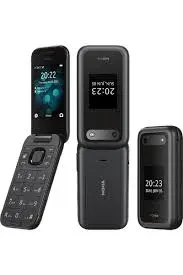
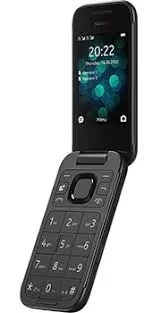
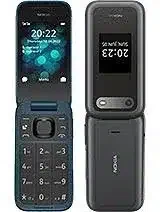
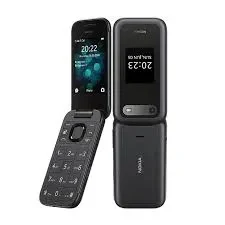
- : 48MB RAM Unisoc T107
- : 2.8" 240x320 pixels
- : 1450mAh
- : 0.3MP
The Nokia 2660 Flip is a sleek and stylish flip phone that combines classic design with modern functionality. With its compact size and ergonomic design, this phone fits comfortably in your hand and pocket, making it ideal for on-the-go use.
Featuring a vibrant 1.8-inch color display, the Nokia 2660 Flip delivers crisp and clear visuals for easy navigation and viewing of your messages, contacts, and photos. The intuitive user interface ensures that you can quickly access all the features and functions you need with just a few simple taps and clicks.
Equipped with a built-in VGA camera, you can capture your favorite moments on the go and share them with friends and family. Whether you’re snapping selfies or taking photos of your surroundings, the Nokia 2660 Flip allows you to capture memories wherever you are.
In terms of connectivity, this phone supports Bluetooth technology, allowing you to wirelessly connect to compatible devices such as headphones, speakers, and other accessories. Additionally, with its support for 2G network connectivity, you can stay connected to friends and family via calls and text messages, even in areas with limited coverage.
The Nokia 2660 also offers practical features such as a calendar, calculator, and alarm clock, helping you stay organized and on schedule throughout your day. Plus, with its durable construction and long-lasting battery life, you can rely on this phone to keep up with your busy lifestyle.
Whether you’re looking for a reliable backup phone or a simple device that gets the job done, the Nokia 2660 Flip is an excellent choice. Its classic design, user-friendly interface, and essential features make it a versatile and dependable companion for everyday use.
Specs
Network
| 2G Network GSM 850 / 900 / 1800 / 1900 - SIM 1 & SIM 2 (dual-SIM) CDMA 800 / 1900 |
GSM 850 / 900 / 1800 / 1900 - SIM 1 & SIM 2 (dual-SIM model only) |
| 3G Network |
HSDPA 850 / 900 / 2100 - International HSDPA 850 / 900 / 1700(AWS) / 1900 / 2100 - LATAM, BR |
| 4G Network |
1, 3, 5, 7, 8, 20 - EU, RUCIS 1, 3, 5, 7, 8, 20, 28, 38, 40, 41 - MENA, SSA, APAC 1, 3, 5, 8, 38, 39, 40, 41 - IN, GCR 1, 2, 3, 4, 5, 7, 8, 28 - LATAM, BR |
| Speed |
HSPA, LTE |
LAUNCH
| Announced | July, 2026 |
| Status |
Available. Released 2022, July 28 |
BODY
| Dimensions | - |
| Weight | 123 g (4.34 oz) |
| SIMs SIM (Subscriber Identity Module) is a small card that contains mobile network subscriber's account information. This allows the phone using the card to attach to a mobile network. The SIM card is most commonly associated with GSM and UMTS mobile networks. Moving a SIM card from one phone to another allows a subscriber to switch mobile phones without having to contact their mobile network carrier. SIM cards can also be used by a phone to store limited amounts of data, such as phone numbers and text messages. |
Single SIM (Nano-SIM) or Dual SIM (Nano-SIM, dual stand-by) |
Display
| Display Type Display Technology => A number of display technologies and types used in mobile phones => TFT (Thin Film Transistor), IPS (In-Place Switching), OLED (Organic Light Emitting Diode), AMOLED (Active-Matrix Organic Light-Emitting Diode), Super AMOLED (an even advanced version of AMOLED), Resistive Touchscreen (Resistive touchscreens contain two layer of conductive material with a very small gap between them which acts as a resistance), Capacitive Touchsceen (Capacitive touchscreen technology consists of a layer of glass coated with a transparent conductor) | TFT LCD |
| Size | 2.8 inches, 24.3 cm2 |
| Resolution | 240 x 320 pixels, 4:3 ratio (~143 ppi density) Secondary external 1.77" display |
PLATFORM
| Chipset Chipset is a group of integrated circuits designed to perform one or a more dedicated functions, often with real time computing constraints, Popular smartphones are equipped with more advanced embedded chipsets that can do many different tasks depending on their programming. | Unisoc T107 (22 nm) |
| CPU CPU (Central Processing Unit) mostly known as processors, CPU processes instructions in order to carry out certain functions that make your device operate properly. Processors are often described as the brain of computers, smartphones and tablets, Smartphones and tablets rely on processors to carry out their every task, Processors are an incredibly important factor in selecting any type of computing device, including your smartphone. | Unisoc T107 (22 nm) |
MEMORY
| Card Slot Memory Card Slot is a special slot for inserting a memory card. Memory cards allow you to expand the phone's built-in memory, A memory card (sometimes called a flash memory card or a storage card) is a small storage medium used to store data such as text, pictures, audio, and video, for use on small, portable or remote computing devices such as mobile phones, mp3 players, digital cameras. | microSDHC |
| Internal | 128MB 48MB RAM |
MAIN CAMERA
| Cameras Specs Today’s smartphones come equipped with a very comprehensive set of camera related specifications. Our smartphone, for many of us, has become our primary camera due to it being the one we always have with us. |
0.3 MP |
| Video | Unspecified |
| Camera Features |
LED flash |
SELFIE CAMERA
| Cameras Specs Today’s smartphones come equipped with a very comprehensive set of camera related specifications. Our smartphone, for many of us, has become our primary camera due to it being the one we always have with us. |
No |
SOUND
| Loudspeaker | Yes |
| 3.5mm jack |
Yes |
COMMS
| WLAN |
No |
| Positioning |
No |
| Bluetooth Bluetooth is a wireless communications technology for exchanging data between mobile phones, headsets, computers and other network devices over short distances without wires, Bluetooth technology was primarily designed to support simple wireless networking of personal consumer devices. | 4.2, A2DP |
| Infrared Infrared connectivity is an old wireless technology used to connect two electronic devices. It uses a beam of infrared light to transmit information and so requires direct line of sight and operates only at close range. | |
| USB | microUSB 2.0 |
| NFC NFC (Near field communication) is a set of standards for smartphones and similar devices to establish peer-to-peer radio communications with each other by touching them together or bringing them into proximity, usually no more than a few inches. | |
| Radio |
Features
BATTERY
| Battery Type Battery Type => Cell phones run on various kinds of batteries depending on the manufacturer, phone size or shape and features. There are basically four types of cell phone batteries => Lithium Polymer, Lithium Ion, Nickel Metal Hydride and Nickel Cadmium. | Li-Ion (Lithium Ion) |
| Capacity Battery Capacity is a measure (typically in Amp-hr) of the charge stored by the battery, and is determined by the mass of active material contained in the battery. The battery capacity represents the maximum amount of energy that can be extracted from the battery under certain conditions. | 1450 mAh |
| Placement | removable |
| Charging The functionality responsible for recharging batteries in portable devices, such as mobile phones, significantly influences both battery lifespan and the practicality of daily product usage.The charging process, encompassing factors like voltage, current, and completion actions, is contingent upon the battery's size and type.Contemporary battery chargers dynamically adjust charging parameters based on the battery's current charging state. Charging an empty battery poses no safety risk, allowing for a quicker charging process. Consequently, many charging speed benchmarks, including ours, specify the battery level achieved after a 30-minute session on an empty battery.Standard chargers with a power output of 5V/1A, equivalent to 5W, serve as a baseline, with anything surpassing this speed classified as quick or fast charging. | Compatible with a charging cradle |
MISC
| Colors |
Gray, Blue, Red, Lush Green, Pop Pink |
| Model | TA-1480, TA-1474, TA-1469 |
| SAR SAR (Specific absorption rate): Each GSM handset has a radio transmitter and receiver in order to operate in the wireless GSM network. That transceiver is manufactured so that when used next to the ear and when worn on the belt, it won't exceed the limits for exposure to radio frequency energy set by the authorities.The authorities in question here are the Federal Communications Commission (FCC) of the U.S. Government, Industry Canada of the Canadian Government (IC), and the Council of the European Union. |
0.47 W/kg (head) 1.16 W/kg (body) |
| SAR EU Each GSM handset has a radio transmitter and receiver in order to operate in the wireless GSM network. That transceiver is manufactured so that when used next to the ear and when worn on the belt, it won't exceed the limits for exposure to radio frequency energy set by the authorities.The authorities in question here are the Federal Communications Commission (FCC) of the U.S. Government, Industry Canada of the Canadian Government (IC), and the Council of the European Union. |
0.36 W/kg (head) 1.48 W/kg (body) |
| Price | $ 67.50 / € 69.13 / £ 49.99 / ₹ 2,940 |
TESTS
Reviews
Offers
-
 Nokia 2660 Flip Feature Phone with 2.8" display, 4G Connectivity, Hearing Aid Compatibility (HAC), built-in camera, MP3 player, wireless FM radio and classic games (Dual SIM), Black
£55.99
Nokia 2660 Flip Feature Phone with 2.8" display, 4G Connectivity, Hearing Aid Compatibility (HAC), built-in camera, MP3 player, wireless FM radio and classic games (Dual SIM), Black
£55.99
View Offer
Disclaimer Note
We strive to maintain accurate and up-to-date content on our website for general information purposes only. Please refrain from using the material for business, legal, or any other decisions.



